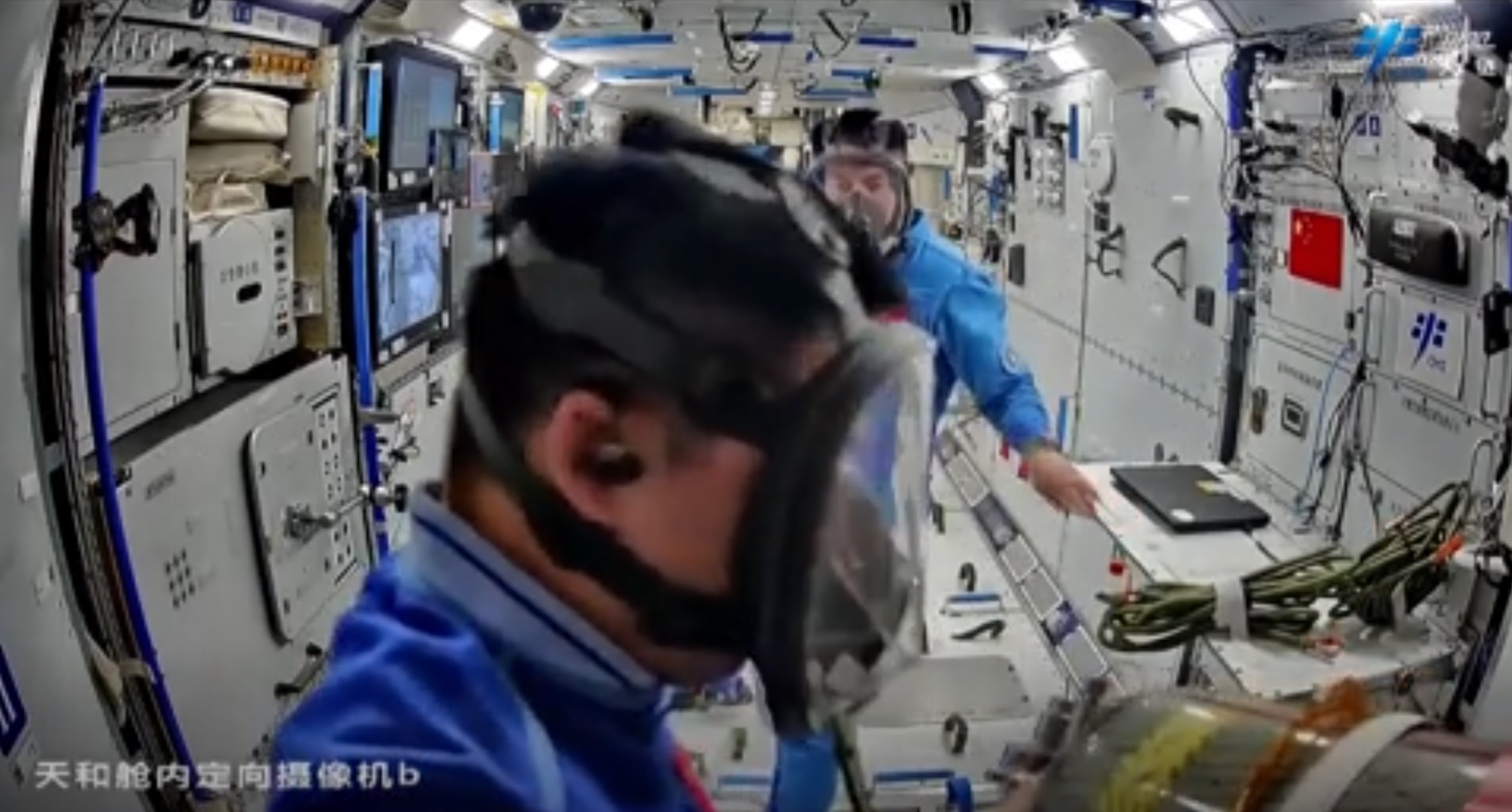Chinese astronauts simulate a debris-strike emergency on the Tiangong space station (video)
The drill simulated a space station decompression event after a debris hit.
China's Shenzhou 18 mission staged an emergency drill recently to boost preparedness aboard the country's space station.
Shenzhou 18 commander Ye Guangfu and crewmates Li Cong and Li Guangsu conducted the drill in mid-July to practice procedures for the case of a decompression event aboard the Tiangong space station.
The crew worked in collaboration with the ground team in Beijing, simulating the whole process of emergency response to a simulated scenario of space debris striking Tiangong and causing decompression.

After an alarm was raised, each crewmember quickly put on masks linked to air supplies. They then began to seek the source of the leak, successfully plugging it with the support of engineers back on Earth.
Related: A new, deadly era of space junk is dawning, and no one is ready
The Shenzhou 18 crew launched to Tiangong in late April. Combating the threat of space debris has been a key theme of the mission. The trio have so far embarked on a pair of spacewalks to install shielding to protect Tiangong from space debris and inspect the outside of the station.
The first of these extravehicular activities, in May, set a national spacewalk duration record of around 8.5 hours.
Get the Space.com Newsletter
Breaking space news, the latest updates on rocket launches, skywatching events and more!
The Shenzhou 18 astronauts have also completed a range of other tasks, including replacing experimental samples and undergoing mental assessments.
The trio recently completed research for an "In-orbit Emotion Recognition and Evaluation of Astronauts," according to CCTV+. This involved questionnaires on emotional states and will be used to help researchers study and assess the impact of long-term space missions on astronauts' mental health.
The Shenzhou 18 mission will last around six months. The crew will then welcome the Shenzhou 19 astronauts aboard Tiangong and hand over control of the station. China completed the three-module Tiangong space station in 2022 and aims to keep the orbital outpost permanently occupied for at least a decade.
Join our Space Forums to keep talking space on the latest missions, night sky and more! And if you have a news tip, correction or comment, let us know at: community@space.com.

Andrew is a freelance space journalist with a focus on reporting on China's rapidly growing space sector. He began writing for Space.com in 2019 and writes for SpaceNews, IEEE Spectrum, National Geographic, Sky & Telescope, New Scientist and others. Andrew first caught the space bug when, as a youngster, he saw Voyager images of other worlds in our solar system for the first time. Away from space, Andrew enjoys trail running in the forests of Finland. You can follow him on Twitter @AJ_FI.









